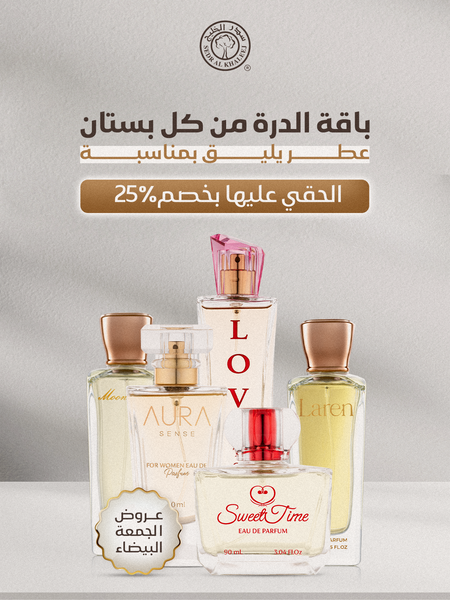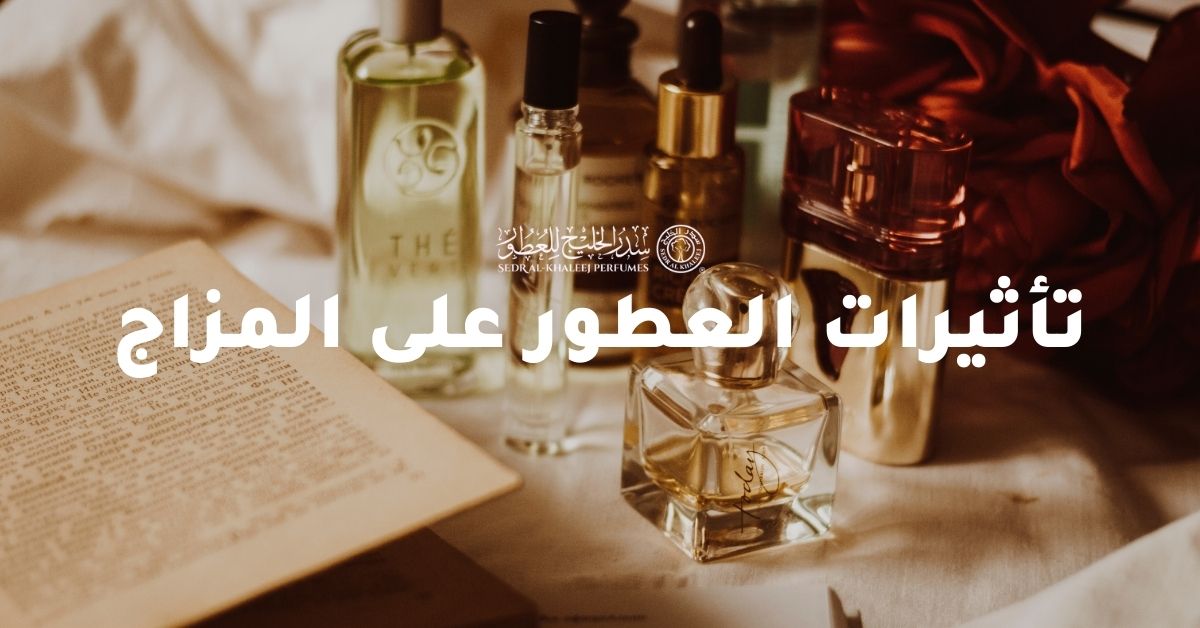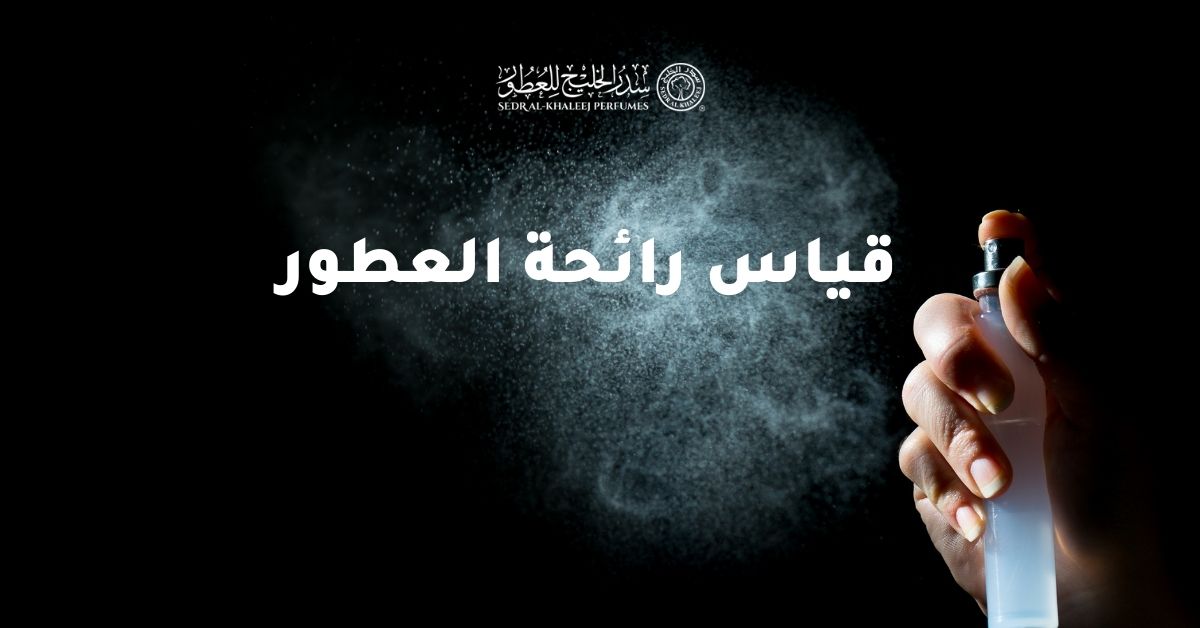Play Perfumes They add a touch of beauty and sophistication to our lives, and they also give us a sense of happiness and satisfaction, the purpose of exploring the history of Perfumery Exploring the the history of perfumery can help us understand the importance of perfume in our lives, and it can also give us insight into the evolution of the perfume industry through time.
The perfume industry dates back thousands of years, as perfumes were used in ancient civilizations for various purposes, and then developed perfume industry has evolved significantly over time, as new methods have been developed to extract Essential oils and blending them, as well as developing new types of Perfumes.
In this article, we'll take a look at the history of perfumeryfrom ancient times to modern times. We will discuss the development of perfumery industry and its impact on our daily lives.
Fragrances in the ancient world and their uses
Ancient Egypt and perfume
is a Egypt ancient the birthplace of perfumeryThe history of perfumery in Egypt dates back to around 4500 BC. It was perfumes used in Egypt for a variety of purposes, including:
- Religious rituals: Fragrances were used in religious rituals to show respect to the gods, and were also used in mummification to preserve the bodies of the dead.
- Personal hygiene: Perfumes were used to eliminate unpleasant odors from the body and were used to keep the body's skin soft and supple.
- Beauty: Fragrances were used for decoration and body odor, and were also used to treat certain illnesses, such as headaches and colds.
was ancient Egypt was a source of many essential oilssuch as sandalwood, amber, musk, and rose. It was also ancient Egypt was home to many experts in perfumerywho developed new ways to extract essential oils and mixing them.
Perfumes in Greek and Roman Civilization
Influenced by Greek and Roman civilization was influenced by ancient Egypt in the field of perfumerywhere the Greeks and Romans learned from the Egyptians how to extract essential oils and mixing them.
- were perfumes used in civilization Greek and Roman civilization for a variety of purposes, including:
- Personal hygiene: Perfumes were used to eliminate unpleasant odors from the body and were used to keep the body's skin soft and supple.
- Beauty: Fragrances were used for decorationand body odor, and were also used to treat certain illnesses, such as headaches and colds.
- Social networking: Fragrances were used to show interest in others and can help create an atmosphere of intimacy and understanding.
Civilization was Greek and Roman civilization civilization was the source of many essential oilssuch as jasmine, lemon, and peppermint. The Greek and Roman Greek and Roman was home to many experts in perfumerywho developed new ways to extract essential oils and blending them.
Indian culture and the art of perfumery
The culture Indian is one of the oldest cultures to use perfumes. It was perfumes used in India for a variety of purposes, including:
- Religious rituals: Fragrances were used in religious rituals to show respect to the gods, and were also used to treat certain illnesses, such as headaches and colds.
- Personal hygiene: Perfumes were used to eliminate unpleasant odors from the body and were used to keep the body's skin soft and supple.
- Beauty: Fragrances were used for decoration and body odor, and were also used to treat certain illnesses, such as headaches and colds.
was India a source of many essential oilssuch as rose, jasmine, and oud. India was also home to many experts in making perfumerywho developed new ways to extract essential oils and blending them.
Ancient Perfumery Techniques
Using essential oils
were essential oils were the primary ingredient for perfumes in the ancient world. They were extracted essential oils were extracted from plants by various methods, including
- squeeze: The most common method of extracting essential oils is juicing, where plants are squeezed to extract the oils from them.
- Distillation: Distillation was also a popular method for extracting essential oilswhere plants are heated to release their oils, and then the oils are condensed into water.
- sublimation: Sublimation was a less common method of extracting essential oils, in which plants are heated to a certain temperature that causes the oils to evaporate, and then the oils evaporated.
Natural Odor Extraction Processes
The process of extracting natural odors other natural odors used in perfumery ancient include:
decay: The atomization method was a popular method for extracting odors where plants are dissolved in a solvent, then the solution is heated to release odors.
evaporation: Evaporation was a popular method for extracting odors odors from plants, in which plants are heated plants to release odors, and then the evaporated odors are collected.
filtration: The filtration method was a popular method for extracting odors from plants, where powdered plants are passed through a cloth or filter paper to separate the odors from the other components.
The evolution of perfume in the Middle Ages
Perfumes in Islamic Civilization
played Islamic civilization played an important role in the development of perfumery in the Middle Ages. It was Muslims among the first to develop new ways to extract essential oilssuch as the steam distillation method. They also developed new ways to preserve essential oilssuch as the pickling method.
- Perfumes were common in the Islamic civilizationThey were used for a variety of purposes, including:
- Religious rituals: Perfumes were used in religious rituals to show respect to the gods.
- Personal hygiene: Perfumes were used to eliminate unpleasant odors from the body and were used to keep the body's skin soft and supple.
- Beauty: Fragrances were used for decoration and to improve body odor.
- Medicine: Fragrances were used to treat certain illnesses, such as headaches and colds.
was Islamic civilization was the source of many essential oilssuch as rose, jasmine, and oud. It was also Islamic civilization was home to many experts in perfumerywho developed new ways to extract essential oils and blending them.
Cultural influences on perfumery
Influenced perfumery industry in the Middle Ages was influenced by many different cultures, including:
- Islamic civilization: Muslims developed new ways to extract and preserve essential oils.
- Chinese civilization: Fragrances were common in the Chinese civilization, where they were used for a variety of purposes, including treatment and beautification.
- Indian civilization: Fragrances were common in Indian civilization, where they were used for a variety of purposes, including religious rituals and beauty.
Oriental scents and dynastic fragrances
were oriental perfumes were popular in the Middle Ages, characterized by their strong and distinctive aromas. They were oriental perfumes were often used in religious rituals and ceremonies.
There were also perfumes for the ruling dynasties, which were characterized by luxurious and expensive. These were perfumes were often used to display wealth and power.
The European Renaissance and Perfumery
Technological Innovations in Perfumery
experienced perfumery evolved during the European Renaissance European RenaissanceMany new technical innovations were developed, including:
- Developing new ways to extract essential oilssuch as the continuous steam distillation method.
- Developing new ways to preserve essential oilssuch as the method of storing in airtight bottles.
- Developing new methods for making perfumessuch as the method of adding alcohol to perfumes.
The discovery of alcohol and its role in perfumes
was the discovery of alcohol in the 12th century was one of the most important technical innovations in perfumery. Alcohol was effective in preserving essential oilsas well as adding to perfumes stabilization and fragrance.
The use of alcohol in perfumes became popular in the 14th century, leading to the development of new types of perfumes such as aqueous perfumes and oil-based perfumes.
The influence of artisans and traders in development
Play craftsmen and merchants played an important role in the development of the perfumery industry during Renaissance. Artisans were responsible for perfumerywhere they developed new techniques for extracting essential oils and mixing them.
Merchants were responsible for distribution of perfumesThey helped popularize perfumes to new areas.
Perfumes in modern times
experienced perfume industry has evolved significantly in the modern era, influenced by many economic, social, and cultural factors.
Economic and social influences on the fragrance industry
Many economic and social factors have contributed to the development of the perfumery industry in modern timesincluding:
- Economic growth: Economic growth has increased the demand for fragrances, as more people can afford them.
- manufacturing: Industrialization has lowered the cost of producing fragrances, making them more accessible.
- Travel: Traveling has increased awareness of different cultures, leading to an increased demand for fragrances that reflect these cultures.
Marketing and product changes
play marketing and product introduction changes have played an important role in the growth of the perfume industry in the modern era. Companies are using new marketing techniques, such as TV commercials and online advertising campaigns, to boost their sales. Companies have also started introducing new products, such as water-soluble fragrances and perfumes and alcohol-free fragrances to meet the changing needs of customers.
Cultural trends and their influence on odor preference
Influenced perfumery has also been influenced by cultural trends, with fragrances being used to reflect personal and cultural identity. People are becoming more interested in finding fragrances that reflect their personality and style. People are also becoming more interested in fragrances that reflect their culture and heritage.
Modern Perfume Technology
experienced perfume industry in the modern era, as many new technologies have been developed, such as the utilization of synthetic materials and advances in chemical extraction processes.
Utilizing synthetic materials
Synthetic materials are used in perfumery since the nineteenth century, initially used to increase perfume production and reduce their cost. As technology has evolved, synthetics have become more complex and versatile, as they can be used to create entirely new scents.
Synthetic materials are used in perfumery are used for many purposes, including
- Creating new odors: Synthetic materials can be used to create entirely new odors that cannot be found in nature.
- Increased odor stability: Synthetic materials can be used to increase the persistence of odors, making them last longer.
- Reducing the cost of production: Synthetic materials can be used to lower the cost of production, making fragrances more accessible.
Advances in Chemical Extraction Processes
Many advances in chemical extraction processes have been developed in recent years, increasing the efficiency of extraction of essential oils.
One of the most important advances in chemical extraction processes:
- Utilizing water extraction techniques: Aqueous extraction techniques are used to extract essential oils using water instead of organic solvents. Aqueous extraction techniques are safer and more environmentally friendly than traditional extraction techniques.
- Utilizing Ultrasonic Extraction Techniques: Ultrasonic extraction techniques are used to extract essential oils using ultrasound. Ultrasonic extraction techniques are more efficient than traditional extraction techniques.

The effect of perfume on the soul and mind
The psychology behind the perfume effect
are related fragrances are closely linked to emotions and memories, as they can evoke fragrances strong emotional reactions in people.
This is because fragrances are directly linked to the limbic system, a part of the brain responsible for emotions and memory. When a person smells a scent, it sends signals to the limbic system, triggering memories and feelings associated with that scent smell.
Fragrances and memory stimulation
Fragrances can help stimulate memory. They can help associate events and people with odors.
For example, if you wear a certain perfume every time you go on a date with someone, you may associate that perfume to the feelings and memories associated with that person. The next time you smell that perfume, it may evoke memories of that person.
The Role of Fragrances in Improving Mood
can help fragrances can helpimprove mood, as they can evoke positive emotions, such as happiness and comfort.
For example, if you're feeling stressed, wearing perfume that is fresh and light can help you relax. Or if you're feeling sad, wearing a warm and creamy fragrance may help you feel comforted.
The Potential Future of Perfumery
Facing The perfume industryIn today's world, the perfume industry is facing challenges and changes, such as climate change, environmental trends, and changing consumer trends.
Technology and future innovations
Technology is likely to continue to play an important role in perfumery industry in the future. Advances in technology are expected to lead to new innovations in the perfumery industrysuch as:
- Developing new odors: Advances in odor science are expected to lead to the creation of entirely new odors that cannot be found in nature.
- Creating more sustainable scents: Advances in aromatherapy are expected to lead to the creation of more sustainable scents, using sustainable materials and eco-friendly technologies.
- Developing new ways to apply perfume: Advances in technology are expected to lead to the development of new ways of applying fragrances, such as the use of electronic scents or smart scents.
Changes in fragrance consumption trends
Consumption trends are expected to continue perfumes are expected to continue to change in the future. Environmental trends are expected to increase the demand for fragrances sustainable. Changing consumer trends are also expected to increase the demand for personalized fragrances and personalized products.








Leave a comment
All comments are moderated before they are published.
This site is protected by hCaptcha and the hCaptcha Privacy Policy and Terms of Service apply.